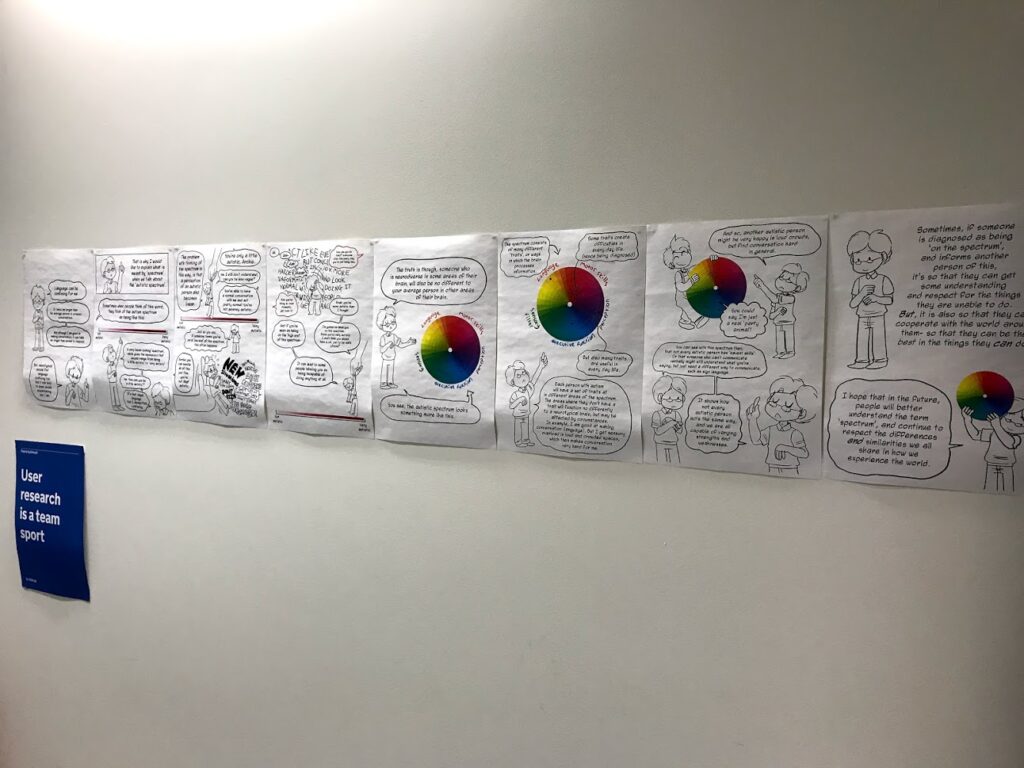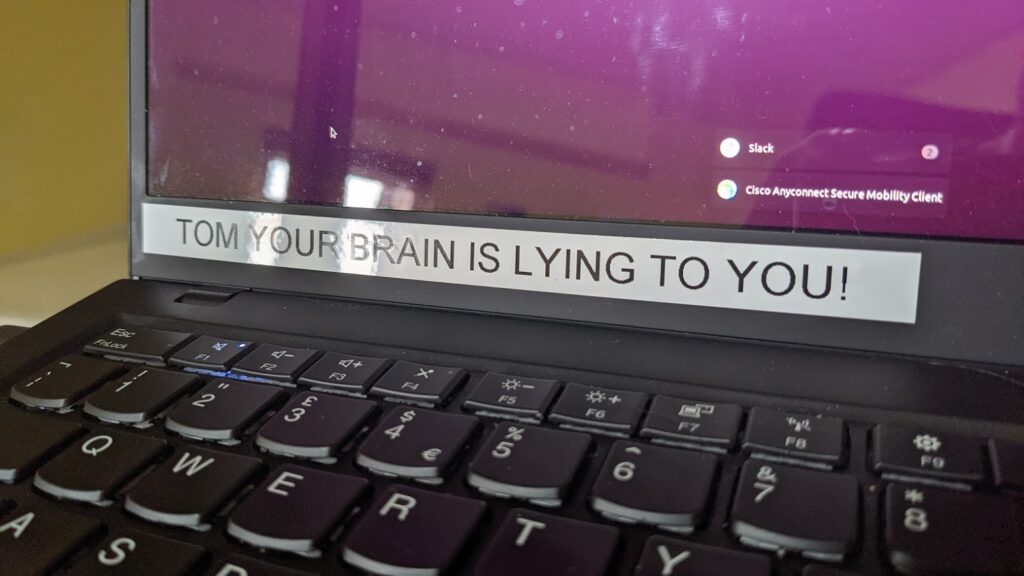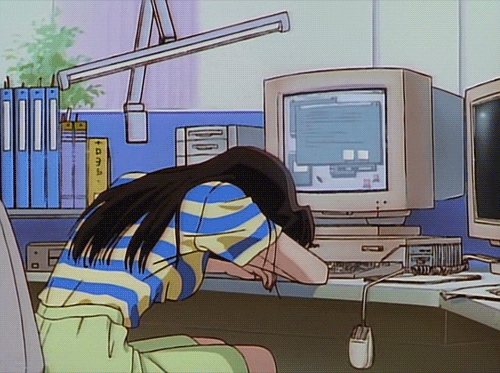Background
Right so if Chris Packham can do this so can I!
The time has come where I feel I can disclose to a wider community some of the conditions that fundamentally make me who I am.
My aim in doing this is to ease communication and workplace stress that I tackle in my day job, I also hope to try and remove some of the misconceptions and stigmas that are tied to Autistic Spectrum Condition(ASC) and Dyslexia.
For transparency’s sake I was diagnosed as having Dyslexia at age 5 and Asperger’s Syndrome at age 10, although I was a child when I received these diagnoses these conditions still have a strong impact on my day to day living and will persist for the rest of my life.
I would like people to take away from this page that Autistic people do not want to be treated differently from a neurotypical person but would like some understanding towards to the oddities caused by the condition.
These examples are taken from my personal experiences of my condition and should not be taken as hard evidence for all people with the same diagnosis. ASC and Dyslexia differ massively between individuals and are not blanket statements please do not try and force theses views onto another person with the same diagnosis as it is likely they do not align.
TLDR Summary Points
- Treat me like I’m a normal human
- Having an autistic spectrum disorder means that I can’t judge emotions and tone easily; I can’t tell if you actually think “I’m the worst” or it’s just a joke. New people and situations can overwhelm
- Dyslexia means english can be fun, my spelling is atrocious
- I can get very lost in detail for hours…
- …but can be prone to SQUIRREL type distractions around me, much like most coders
- I can solve problems very intuitively…
- …but I can’t always explain how or why
- I’ll remember things you don’t and forget the obvious/immediate things you do
- I can get tired easily
- Sometimes I’ll slope off because I’m too tired to usefully work or interact
Autistic Spectrum Condition (Formerly known as Asperger’s Syndrome)

So this is the reason why this whole page exists and will hopefully explain some of my oddities.
Autistic Spectrum Condition, which I refer to as ASC throughout this document, is a mixture of traits that manifests in a few positive and negative ways.
Some of the positive points of the condition result in different approaches to processing the world, including improved focus, problem solving and attention to detail – I will go into more detail about these later on in this page.
The negative side of the condition is ‘disabling’ within social interactions or unusual situations. Some of the major hurdles I face, again, are documented later on in this document.
Similarly to other people with ASC I typically show a façade when I am interacting in social situations to appear ‘normal’, which can be incredibly draining, and can potentially cause issues when this façade breaks down – for example when put into an unfamiliar situation.
It cannot be cured and is more of a difference in the way the brain has developed and does not make the individual any less of a person than anyone else.
Dyslexia

Nope I don’t see things backwards or upside down. Dyslexia is an odd condition in its own right and has a lot of its own eccentricities.
It does not have an impact on how I talk, but radically impacts on the way I process written work. The main symptom it causes is very inaccurate spelling (This sentence probably had the most mistakes out of the whole document). It has taken me years to be able to write anywhere close to the level of my peers, but to be honest my spelling is still atrocious – things fall to pieces when words are over two syllables. You will probably get a word that is spelt phonetically rather than the actual spelling. Put it this way – without a spellchecker, I’d be screwed. A slightly interesting phenomenon is that I will readily mix up tense; I and You often get mixed up along with b, p, q, d often getting substituted.
The other side of this is reading. Nowadays I’d say my reading is fairly good; I occasionally stumble on words, but Google is definitely my friend. I find reading very mentally taxing and tiring, which has resulted in the fact that I have only ever read a handful of books in my life. In recent years, I have found the use of screen readers to aid massively for when I need to get through large quantities of text.
It also causes some issues with memory – short term memory of someone with Dyslexia is awful. A typical person will be able to remember 7-8 numbers when given to them; a dyslexic will struggle with 3-4 and jumble them up. This causes havoc with education due to the fact that with the British Language a lot of the early principles are taught with rhyme and songs, which due to the memory challenges faced by dyslexia, these concepts do not often cement themselves in the same way.
Enhanced Features
Focus

This one is a double-edged sword; its main advantage is that when the environment is right I will get wrapped into a task and really dig my teeth in, to the point where it is almost impossible to pull me away.
The flipside is that my focus is very easily broken, or is drawn into whatever is on my mind at that current second, and cannot be broken away from.
Problem Solving

Following on from focus, this combined with the linear and logical thinking style, results in a strong problem solving ability. It gives me the power to think through problems in a way that most people cannot.
This can have its downsides, as a lot of my energy can be drained in problem solving or working out why things are the way they are, for example in social situations I may overly try and problem solve the emotion on someones face or tone of voice and misconstrue it, when there is actually no motive behind it.
There is a issue that I find it hard to solve a problem when I do not have the whole context of how everything fits together, as i want to create compute systems todo each functionality and can be uncertain or struggle without that.
Attention to detail

This is one of the more fun aspects of the condition – it enables me to take in much more of an interest in the little things.
In my day to day life I often find myself being drawn in and spending time focusing on the smaller things – for example, how a single leaf falls through the air and trying to apply the physics to it, or I will notice small changes in environments where something new has been added or taken away.
Foibles
Absence of visual and auditory filter

This is probably one of the most noticeable / problematic issues that arises from the ASC – I cannot turn off / block out the information I am processing.
There is a video in the external links that shows this first hand.
It has the effect that in crowded places, I struggle to be able to focus on the person on the conversation I am having with someone as all the conversations around me are still being processed and understood.
Keeping my attention on the the individual in question can be incredibly mentally taxing.
Oddity of communication

Communication is difficult at the best of times. ASC does not help with this, as it causes some difficulty around some aspects of day to day interactions.
One of the main problems I encounter is an inability to read tone or body language. This causes me a great deal of anxiety, as I am never truly sure if people mean what they say. I may be able to see there is a social cue there, but not really understand what to do with it.
People with ASC typically interperate things very literally and may not understand that something is meant sarcastically or in jest. This also means reading between the lines usually doesn’t happen. To summarise, people are really bad at actually saying what they mean and it’s confusing!
My body language may be a bit odd at times, and may be a bit misleading – I may appear to be a bit blank, as that is my default state.
Memory and Confusion

Dyslexia and ASC is an uncommon mix, and has some interesting effects on memory. Dyslexia typically has a detrimental effect on short term memory, whereas ASC tends to give individuals almost super memory.
For me this manifests in the fact I can’t remember what I’ve just done most of the time, which results in me asking the same question multiple times as I’ve forgotten I’ve asked it. (This drives my flatmate a bit mad, as I will ask him how his day has been 3+ times each day, without realising it).
But once stuff has got past my short term memory, things become photographic so if you want me to remember something ask me in 24 hours after it has happened where it has crystallised in my head.
I tend to remember stuff that isn’t exactly linked to the main memory; for example I remember the exact order of things on a shelf in the background, where people are stood at the time where they told me something or the order, colour, model or make of cars parked on a street.
Unfortunately, these quirks of my memory can lead me to be confused fairly easily, as I will often forget what I am doing or a crucial part of a senario. I will often write down or ask people to send me a summarised message with information in so I can refer back to remember my train of thought.
Transitions

This is a more tricky problem. Due to the way my focus works, it is very difficult for me to switch away from the task I am currently working on.
I will get quite upset if I have context switch when working on something, moving my mindset to another context is a very demanding task and requires a lot of energy, which may lead to me being more overloaded or fatigued.
It is best to give me about 12-24 hours notice if not more before switching what task I am looking at, just to enable me to get my head into that area of thinking.
Fatigue

Unfortunately, all these things add up and results in the fact that I get fatigued much easier than the average person. If I have an atypical week, then my fatigue levels go through the roof and will result in me being a zombie / overloaded by the end of the week.
This is compounded by the fact that people with ASC usually have difficulty sleeping due to the focus side keeping them awake at night. For me it causes periodic episodes of insomnia, which then adds to the fatigue and inability to cope with the world.
Advanced Concepts
Spoons

Spoons are a gauge of emotional currency. If i have a lot of spoons, it means I should be able to take on a demanding day.
If my spoons are low, it usually means I’m close to being not functional or being in an overloaded state.
Different tasks or situations either take spoons or give spoons back.
Anxiety-inducing situations will likely have a detrimental effect to how many spoons I hold.
Spoons can be gained by removing stress from my day or doing something I enjoy.
Black Dog

One of the unfortunate things about ASC is that people that have it are at higher risks of Depression and Anxiety – for me this is unfortunately true.
I will often describe a day when my Depression / Anxiety is bad as a ‘black dog day’.
There is a video in the external link section at the bottom of the page that does a good job of explaining this well.
Why does your desk have funny things on it?
Noise cancelling headphones

To combat the lack of auditory filter, I use noise-cancelling headphones in an attempt to block out the noise of the outside world.
Unfortunately, this isn’t a foolproof solution, as I can still hear a large part of the world, which steals my concentration away.
Desk dividers (The great cardboard wall of Tom)

My great wall follows a similar vein to the headphones – it’s an attempt at filtering out unwanted distractions. Without the wall, my attention is constantly being pulled to the visual noise that is going past my desk.
This can be infuriating as I cant stop my mind going “HEY LOOK SOMEONE GOING PAST YOU MUST PROCESS THAT” which can kill all focus I have on a task that I’m trying to complete and ultimately adds to the fatigue.
Supervisor

This is a funny little thing, it has two uses one of them is to minimise the distraction of having a strong contrast between light and dark.
The other is helping with Dyslexia; when I am fatigued or tired my eyes tend to lose focus and jump around or struggle to read what is on the screen. Reducing the contrast and bringing it down to a more consistent level using this, helps.
Zigfred the Hedgehog

Zigfred is an emotion support device in some ways. If i’m feeling stressed, or just need to keep my hands busy, he is something something soft that I can hold to relax.
Things that make me happy
Doggo’s


Dogs are a big part of my life, they are amazing creatures and I feel they understand me much better than humans do. I can’t wait for the day when I can have my own dog again.
My favourite breeds are Golden Retrievers, Labradors and my top breed is Border Collies.
You may occasionally hear me talk about Dylan, which was my dog that never left my side during my childhood. (pictured below)

Hedgehog’s

They are very cute and I think they sum up my personality by the way they curly up into a ball to protect themselves.
I’ve wanted a pet hedgehog for a few years now.
Electronics

I love electronics! It’s something I find really interesting! I could easily talk about it all day.
Cameras, phones, games consoles, computers they all draw my interest.
Troubleshooting Guide
Tom is unresponsive or quiet
Tom may be suffering an overload state, please give him some space and try not to overly talk to him as this will increase the overload.
If this does not resolve quickly, remove the Tom from the situation and go for a quiet talk / walk.
Tom may not be where you think he should be
The Tom may have removed himself from the situation to try and be more productive or to prevent overload.
Solution: Message him on Slack,
If this fails contact Tom’s line manager.
Tom appears confused
Solutions:
Ask if he is confused or if he understands what is going on.
If he is unsure try to reaffirm the point in another way
Tom appears sad
Solutions:
Send Doggo or Hedgehog gifs to him
If former fails take him for coffee / walk.
Noteworthy people with these conditions
ASC
- Chris Packham
- Courtney Love
- Dan Aykroyd
- Wolfgang Amadeus Mozart (Suspected)
- Charles Darwin (Suspected)
Dyslexia
- Richard Branson
- Jennifer Aniston
- Steven Spielberg
- Albert Einstein
- Ben Fogle
External Links
Please see below some links that I feel help illustrate the conditions in a positive light.



































